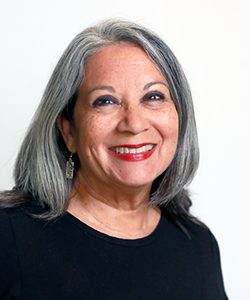
16 Apr Embracing our Mother Tongue’s Diversity
I was born Puerto Rican. I was actually born in New York, but that doesn’t make me a New Yorker any more than being born in Hawaii or Japan makes my cousins Hawaiian or Japanese just because their military parents happened to be stationed there at the time of their births. There is a Roy Brown song based on a poem by Juan Antonio Corretjer that says, “I would be Puerto Rican even if I had been born on the moon.” That’s how I feel.
I grew up Puerto Rican. Back in the late 50s and early 60s I did not pick up on any social cues about what made us different from other Latin American cultures—although there were many about the way in which we were different from mainland U.S. culture. My first teachers were Spanish nuns—yes, from Spain!—and so, as a child, hearing any accent different from our own was simply fascinating. I grew up embracing these differences among friends and strangers: different words to name things, different accents that we called “singing”. Maybe it was an “island thing”, but everyone I knew was not only welcoming of these differences but also enjoyed them, learned from them, sometimes even adopted them.
When I first came to the U.S. in the 70s, my college friends in Texas were puzzled by the way I spoke Spanish. I remember the one time they were all going out for lunch and I said I couldn’t go with them because I had no money. My words were: “no tengo chavos”. What they heard was “I have no guys” because chavo for them did not mean money, it meant guys or boys. You see, few of them had ever met another Puerto Rican. I, on the other hand, was eager to learn this new language my Chicano friends used every day. Soon, I was able to speak just the way they did. We used to hang out at someone’s chante after class, the vatos and rukas together just talking and listening to music because as students none of us had a lot of feria—a word that to me, by the way, meant fair, as in a county fair, not “money”.
After college I moved to Miami and made a lot of new friends from Colombia. I quickly learned to speak like them, even to the point of telling their different regional accents apart: Medellín, Bogotá, Cali, Pereira, Barranquilla. One thing led to another and I became an interpreter while living in Miami. That was, sadly, when I learned how prejudiced a lot of people were about the way we Puerto Ricans speak.
Is it prejudice?
 Maybe these are vestiges of a misplaced elitism, as many of those I’ve encountered with this sort of bias come from the well-educated higher socio-economic echelons of their home countries’ societies. Or maybe it’s just plain ignorance propagated by some sort of Latin American version of eurocentrism, a Hispanophile’s world vision in which there can only be one universal Spanish seen as superior with all other variations being, by definition, inferior. And yet, while the Spanish we speak on our Island is a mix of Andalusian and Canarian influences, with traces of Taíno and African languages, it’s the Peninsular influence what actually stirs the greatest prejudice: the softening or even omitting an intervocalic “d” sound, as in pesao instead of pesado (heavy), the aspiration—technically the debuccalization—of certain consonants, like the “s” as in dejde instead of desde (since), or omitting final consonant sounds, among many others.
Maybe these are vestiges of a misplaced elitism, as many of those I’ve encountered with this sort of bias come from the well-educated higher socio-economic echelons of their home countries’ societies. Or maybe it’s just plain ignorance propagated by some sort of Latin American version of eurocentrism, a Hispanophile’s world vision in which there can only be one universal Spanish seen as superior with all other variations being, by definition, inferior. And yet, while the Spanish we speak on our Island is a mix of Andalusian and Canarian influences, with traces of Taíno and African languages, it’s the Peninsular influence what actually stirs the greatest prejudice: the softening or even omitting an intervocalic “d” sound, as in pesao instead of pesado (heavy), the aspiration—technically the debuccalization—of certain consonants, like the “s” as in dejde instead of desde (since), or omitting final consonant sounds, among many others.
Before becoming an interpreter I had been living in a cultural bubble , studying the great literature of the Latin American Boom: Cortázar, Vargas Llosa, García Márquez, and so many others, learning about the different ways people say things in different countries, feeding my fascination with words and the many ways in which they can be used and the many meanings they can embody, embracing the countless transformations of a language that made each one of us unique and yet provided us with an instrument that brought us all together. Not once did I stop to consider that anyone, much less someone making a living through language, would hold biased views about the way one segment or another of our Spanish-speaking family made use of our “mother tongue.”
Despite all the headway interpreters have made in the U.S., I am still taken aback every time I encounter one of our own who still thinks there is a “better” and a “worse” way to speak. After nearly 40 years of programs and courses designed to teach interpreters how to be well-rounded professionals, there are still some out there who think there is only one “correct” way to speak or name things.
Not better or worse, just different
The truth is that the Spanish of Puerto Rico—particularly legal Spanish—is the legacy of the Spaniards that came during the 16th Century and stayed until Spain lost the Spanish-American War to the U.S. in 1898 and handed over its Caribbean and Pacific island possessions to the new overseas empire the U.S. was assembling under President William McKinley. English, like in every other country around the world, has had an impact on the Island, but we are still a Spanish-speaking People. If you study the etymology of many of the words commonly thought to be borrowed from English you may be surprised by how many are actually words we inherited from Isabel y Fernando and the ensuing Spanish Monarchy, like corte (court), deposición (deposition), vista (hearing), moción (motion), and many more.
There are prescriptivist views that allow for only one correct way to use language and impose certain rules that have to be strictly followed in the mistaken belief that this is how the “purity” of language is safeguarded. The truth is no language is “pure”. Movement across borders necessarily brings languages and cultures into contact and mutual “cross-pollination”. Interpreters must be open to learn every single day and be receptive to every new thing they hear. It is the only way to remain current with all the changes languages go through because language is always shifting. New words are coined (such as all the new cyber crimes), old words acquire new meanings (like “trolling”, “catfishing”, or even “tablet”,) accents change (notice how vowel sounds in English, for example, are changing, and words like divisive in which the second “i” used to be pronounced as in “dive” is now pronounced as in “bid”, or how common it has become to uptalk, that is, giving a higher inflection to the last syllable of a word or the last word in a sentence).
Interpreters who reject changes that result in different usages of their native languages are limiting their growth as professionals and condemning themselves to perpetual mediocrity. Harboring biases against the way one cultural group or another uses language has no place in a professional interpreter’s life, either. Language is our most basic tool-of-the-trade, but unlike hammers and screwdrivers, language is not static and monolithic. “Standard” Spanish—or French or Italian or any other language—is for books and classrooms, not for the real-life situations we encounter every day while interpreting, whether in a courthouse, a hospital, a police precinct, a social worker’s office or an immigration holding cell. There is no room in an interpreter’s world for prescriptivist and intransigent attitudes towards those differences that simply reflect the vibrancy of a language in constant flux and metamorphosis. Professionalism necessarily means that we embrace and respect the diversity in each of our mother tongues.

Janis Palma has been a federally certified English<>Spanish judiciary interpreter since 1981. Her experience includes conference work in the private sector and seminar interpreting for the U.S. State Department. She has been a consultant for various higher education institutions, professional associations, and government agencies on judiciary interpreting and translating issues. She worked as an independent contractor for over 20 years in federal, state and immigration courts around the U.S. before taking a full-time job. Janis joined the U.S. District Courts in Puerto Rico as a staff interpreter in April 2002 and retired in 2017. She now lives in San Antonio, Texas, embracing the joys of being a grandmother. She also enjoys volunteering for her professional associations, has been on the SSTI and TAJIT Boards, and is currently on the NAJIT Board of Directors. Contact: jpalma@najit.org
Read other posts by Janis Palma.

EXcellent, I share many of your experiences. Gracias
Siempre un placer. You’re very welcome. And thank you!
Dear Janis, I always love your posts here but I particularly liked this one because I have been exposed in the past to loud attacks for “adapting” to the language used by the speaker. I particularly remember during a session to prepare us as examiners for the federal exam, when Dr. Roseann González asked for volunteers in an exercise and I interpreted “dame quebrada” for an utterance of “give me a break.” My fellow interpreters almost eat me alive until Dr. González said we had to accept it because it was widely used at the border. Also, when a very Spanish-fluent judge corrected me for interpreting “se me hizo fácil” into “I didn’t think it was a big deal” just to be told: “he actually said: he thought it was easy.” Keep up the good work
Thank you for sharing that, Ramon. I know this bias is everywhere and affects many interpreters in Spanish as well as other languages, so we just need to keep pushing until we can finally put a stop to it. There can be no room for bias in our world.
This is gold! Part of my journey to become a federally certified interpreter has been focused in “unlearning” my Puerto Rican Spanish, because “it sounds too much like English” and the correctors may mark it as incorrect. Although I find it unfair, I have been doing that, because I don’t want to risk not passing.
Do not “unlearn” anything, Dennise, just keep learning other ways of saying things because you just never know when you’ll need them! The more we know about all the varieties of Spanish, the better interpreters we’ll be.
That is my ultimate goal. Thank you, Janis.
Janis, your story has inspired me one more time to be humble, open my ears and mind and listen and learn from others who don’t speak like me. Thanks again, maestra!
Your words are music to my ears, my dear James! You made my day!
As always, Janis, your observations are deeply thoughtful, thought-provoking and enjoyable to read. Thank you for your continued contribution to expanding our perspective.
Regards,
Hal
Always a pleasure, Hal.
¡Hermoso!
Gracias, colega. Abrazos para todos allá en la Isla.
Thank you Janis for this wonderful reminder that language is alive!
My pleasure, Patricia!
Janis, thank you so much for this post! I’ve sadly heard this far too often, and, as someone who grew up in the US, have had well meaning colleagues try to encourage me to learn X variation of Spanish terms (especially legal ones) instead of Y because they perceive it as more “correct”. That’s an approach that never sat well with me.
I can only hope your post inspires colleagues to focus on broadening their knowledge of our rich language, keep an open mind, and welcome even more professional growth as a result. Just because they may have never encountered a particular usage doesn’t mean it isn’t valid!
That is my hope as well, Gabriela. This is my “granito de arena” towards that goal.
Another Newyorican (Bronx-born) here. Loved the article and share many of the same experiences. When I go back to visit New York I’m told I sound Mexican. When I come back home in California I’m told “You not Mexican are you?” 🙂
LOL! There’s a lot of that going around, too.
La casa amarilla de la foto es mi casa, a la orden
Gracias Anne y muchos saludos desde este lado del charco.
Of course we should embrace all forms of any language, rejoice in the beautiful evolutions and revolutions that take place on its horizon. Interpreters are not language instructors. It’s not our place to correct anyone. In fact, it serves us well to understand how language evolves.
It’s not about being prescriptivist or seeking purity…..it’s about consistent accuracy in vital, public service contexts. It’s not about correcting people when they speak, it’s about respecting the fact that a great many Spanish-speaking people DO understand accurate Spanish, even if they don’t use these professional terms in their everyday lives. Why would they use them? They’re not attorneys or doctors. But it is so irresponsible, disingenuous and insulting to just make the blanket assumption: “….well, all working-class Mexicanos, Puertorriqueños, Salvadoreños, etc. need to be fed this simpleton Spanglish because they won’t understand their own language.”
So many “bilinguals” have gotten away with lousy translations and interpretations over too many years because they use this specious argument. But it’s really their own indolence—intellectual apathy to truly learn the language—that they intend to project onto the community. In my almost 20-year experience as a court interpreter, I have honestly found that folks WILL understand and appreciate my usage, my choices in Spanish/English because that’s what they expect. They’re not conversing with a buddy, they’re receiving a professional language service. They will recognize or quickly pick up the official terms that are used because that’s the context they find themselves in……..how ridiculously offensive would it be if a judge starting talking jive or Ebonics to an African-American in the courtroom in the name of “cultural access?”
Puerto Rico is so socially, legally, politically, psychologically bound to the United States, OF COURSE there will MANY instances of an anglicized Spanish in so many contexts…..especially a legal one. There’s no denying that. Yes, “Corte” is a term that comes from Spain, and yes it has to do with the monarchy, but its own evolution into Spanish-speaking countries’ legal systems should also be respected and recognized. “Corte”, signifying an authority made up of a panel of individuals, has no actual meaning in our daily, working context as court interpreters because it refers to the Supreme Court (La Corte Suprema). We work in juzgados, with jueces, during audiencias judiciales, in buildings/institutions called tribunales.. Why can’t we respect these evolutions that have taken place in the majority of Spanish-speaking countries?
Thank you, José. I agree that it’s all about respecting diversity. Language evolves in different directions when spread out as much as Spanish is. Not everyone works in juzgados; some of us work in tribunales (see all the definitions of the word in the Diccionario panhispánico del español jurídico: https://dpej.rae.es/lema/tribunal) and, yes, cortes (https://dpej.rae.es/lema/corte2). You should also check out the entries for vista (https://dpej.rae.es/lema/vista), and the very interesting historical note in #12 for audiencia (https://dpej.rae.es/lema/audiencia.)
I find it all fascinating!
Well said, Janis. I would add that we need to respect the way the people we interpret for speak, and adopt their preferred terminology if possible. Interpreted events are stressful enough, and if we have that flexibility we will be seen as respectful.
Thank you, Helen!
There is a similar discussion in the ASL field. Is there a pure ASL? Is there academic ASL and then a common language for everyday use? How much does a “contact” form of the language impact that when 2 individuals not fluent in each other’s language interact?
Janis, thank you for these thoughts. My take away from this blog is I need to stay familiar with all uses of my languages and not turn a harsh eye on a teammate that uses a construction that I, myself, am not familiar with. Thank you.
I always love it when confluences between spoken and signed languages come to light, Carie. Thank you!